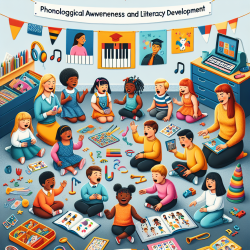As a therapist working in an educational setting, it's crucial to stay updated with the latest research and methodologies to provide the best care for your students. One condition that presents unique challenges is Lesch-Nyhan Disease (LND). A recent study titled "Description of the Lesch-Nyhan neurobehavioral disorder and its management through participant observation of three young individuals" offers valuable insights into managing this complex disorder.
LND is a rare genetic disorder characterized by hyperuricemia, cognitive impairment, severe motor dysfunction, and self-injurious behavior (SIB). The study by Bozano et al. (2020) delves into the neurobehavioral aspects of LND, particularly focusing on the self-injurious behaviors (SIB) and broader Lesch-Nyhan behaviors (LNB) observed in three young individuals. The findings are not only insightful but also practical for practitioners aiming to improve their management strategies for students with LND.
Key Findings and Practical Applications
The study involved 60 observational sessions, totaling over 90 hours, where researchers recorded 292 instances of LNB. Here are some of the key findings and how you can apply them in your practice:
- Understanding LNB Beyond SIB: The study emphasizes that LNB is not limited to self-injury but includes a range of behaviors affecting various life aspects. Recognizing these behaviors can help in developing more comprehensive management plans.
- Emotional Reactions and Pain: Patients often feel pain, regret, and shock after an LNB episode. Increased anxiety is a common aftermath. Being aware of these emotional responses can guide you in providing emotional support and interventions.
- Caregiver Strategies: The study highlights effective strategies used by caregivers to manage LNB. These include distraction techniques, physical restraints, and emotional support. Integrating these strategies into your practice can enhance your effectiveness in managing LND behaviors.
Implementing the Findings
Here are some actionable steps you can take based on the study's findings:
- Expand Your Knowledge: Deepen your understanding of LNB by reading the full research paper. This will give you a comprehensive view of the behaviors and management strategies.
- Training and Workshops: Consider organizing or attending workshops that focus on LND and its management. Practical training can equip you with the skills needed to handle complex behaviors.
- Collaborate with Caregivers: Work closely with caregivers to understand their strategies and incorporate them into your therapeutic approach. Regular communication can ensure consistency in management across different settings.
- Emotional Support: Provide emotional support to your students by acknowledging their feelings and helping them cope with anxiety and regret. Techniques such as mindfulness and relaxation exercises can be beneficial.
- Continuous Research: Stay updated with ongoing research in the field. New findings can offer fresh perspectives and innovative strategies for managing LND.
By implementing these strategies, you can enhance your skills and provide better care for students with LND. The progress you see in your students will not only be rewarding but also a testament to the effectiveness of evidence-based practices.
To read the original research paper, please follow this link: Description of the Lesch-Nyhan neurobehavioral disorder and its management through participant observation of three young individuals.










